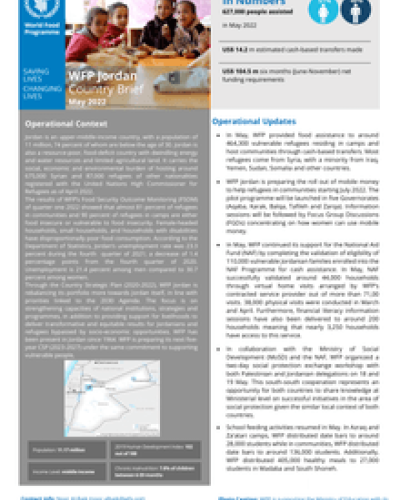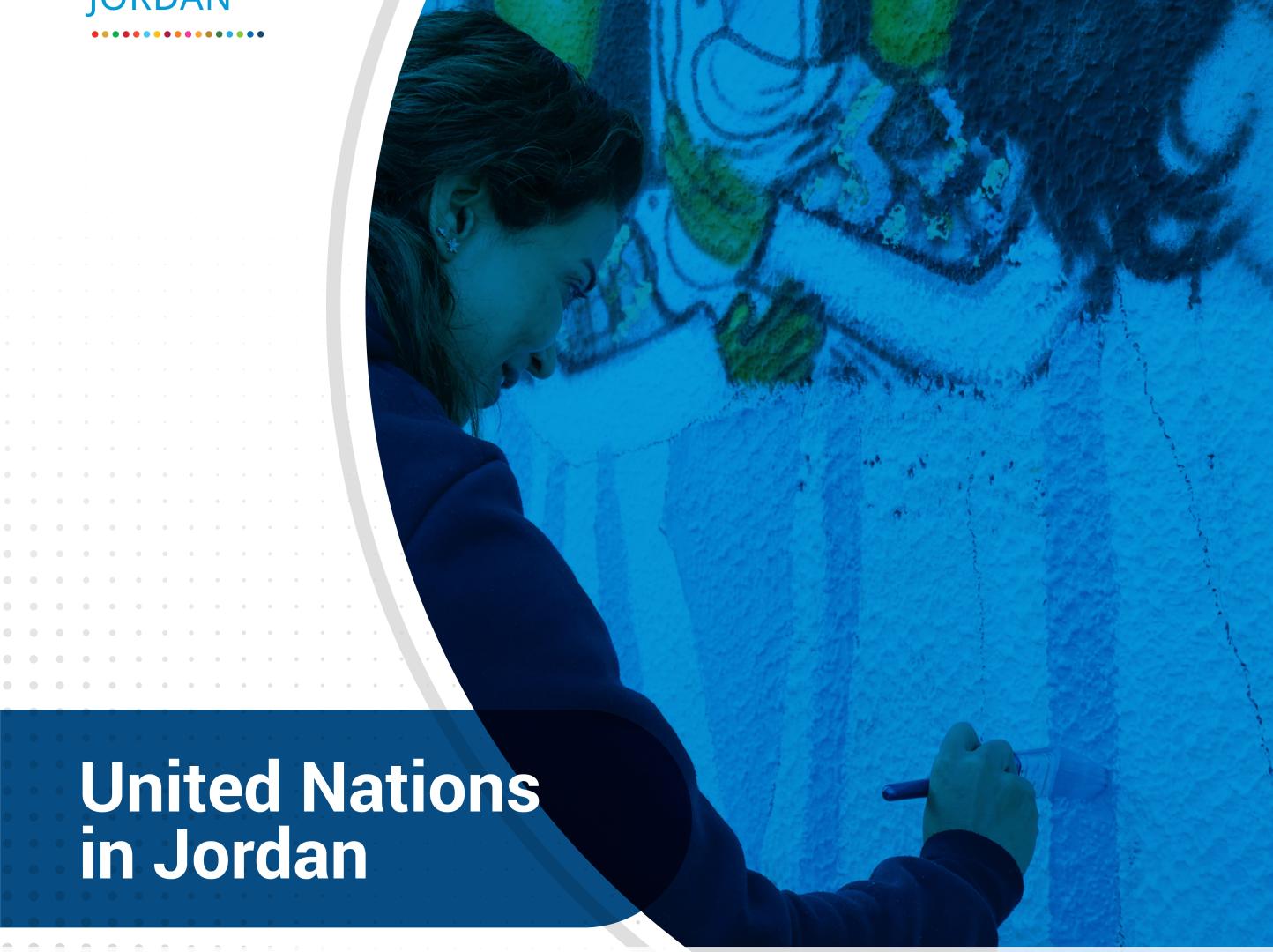WFP Jordan Country Brief

Jordan is an upper-middle-income country, with a population of 11 million, 74 percent of whom are below the age of 30. Jordan is also a resource-poor, food-deficit country with dwindling energy and water resources and limited agricultural land. It carries the social, economic and environmental burden of hosting around 675,000 Syrian and 87,000 refugees of other nationalities registered with the United Nations High Commissioner for Refugees as of April 2022.
The results of WFP’s Food Security Outcome Monitoring (FSOM) of quarter one 2022 showed that almost 81 percent of refugees in communities and 90 percent of refugees in camps are either food insecure or vulnerable to food insecurity. Female-headed households, small households, and households with disabilities have disproportionally poor food consumption. According to the Department of Statistics, Jordan’s unemployment rate was 23.3 percent during the fourth quarter of 2021; a decrease of 1.4 percentage points from the fourth quarter of 2020. Unemployment is 21.4 percent among men compared to 30.7 percent among women. Through the Country Strategic Plan (2020-2022), WFP Jordan is rebalancing its portfolio more towards Jordan itself, in line with priorities linked to the 2030 Agenda.
The focus is on strengthening capacities of national institutions, strategies and programmes, in addition to providing support for livelihoods to deliver transformative and equitable results for Jordanians and refugees bypassed by socio-economic opportunities. WFP has been present in Jordan since 1964. WFP is preparing its next fiveyear CSP (2023-2027) under the same commitment to supporting vulnerable people.






